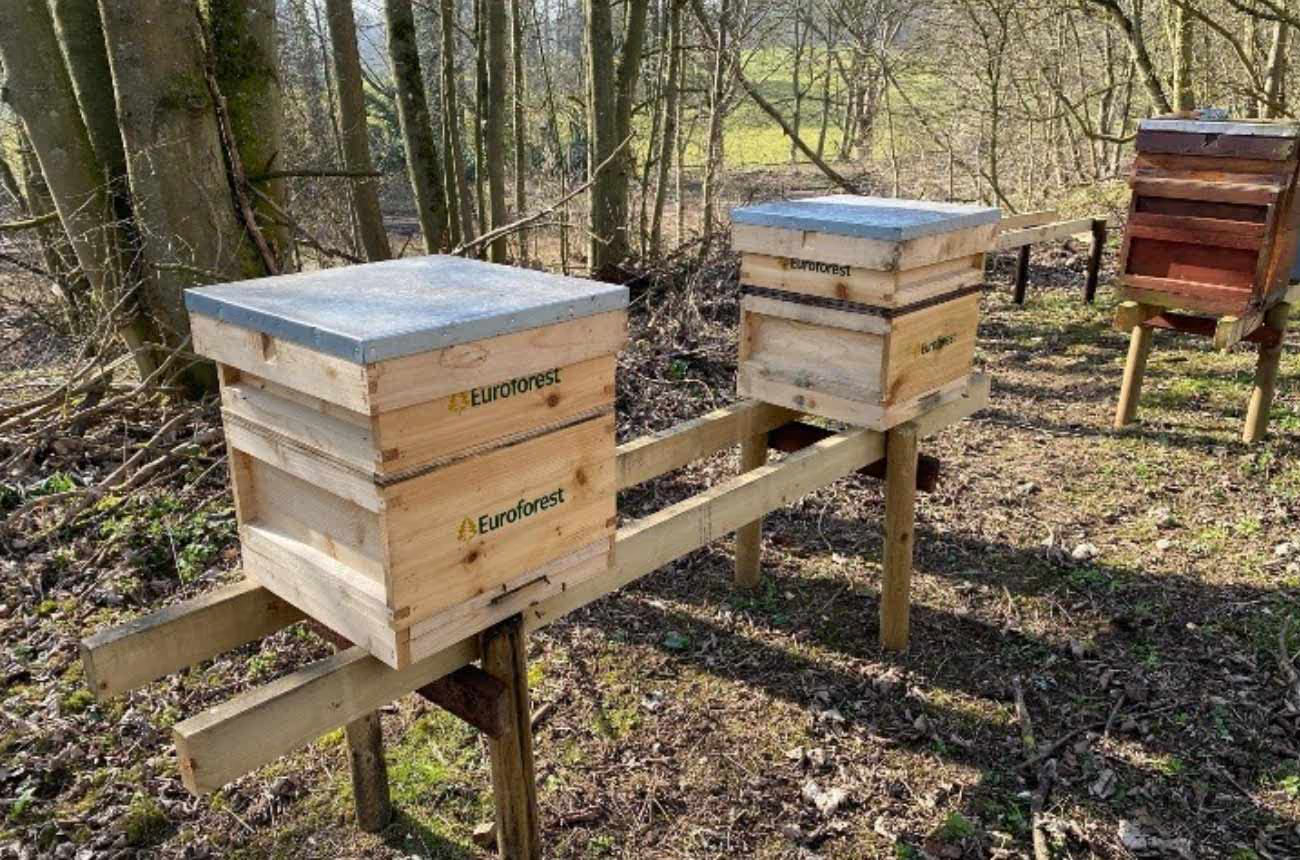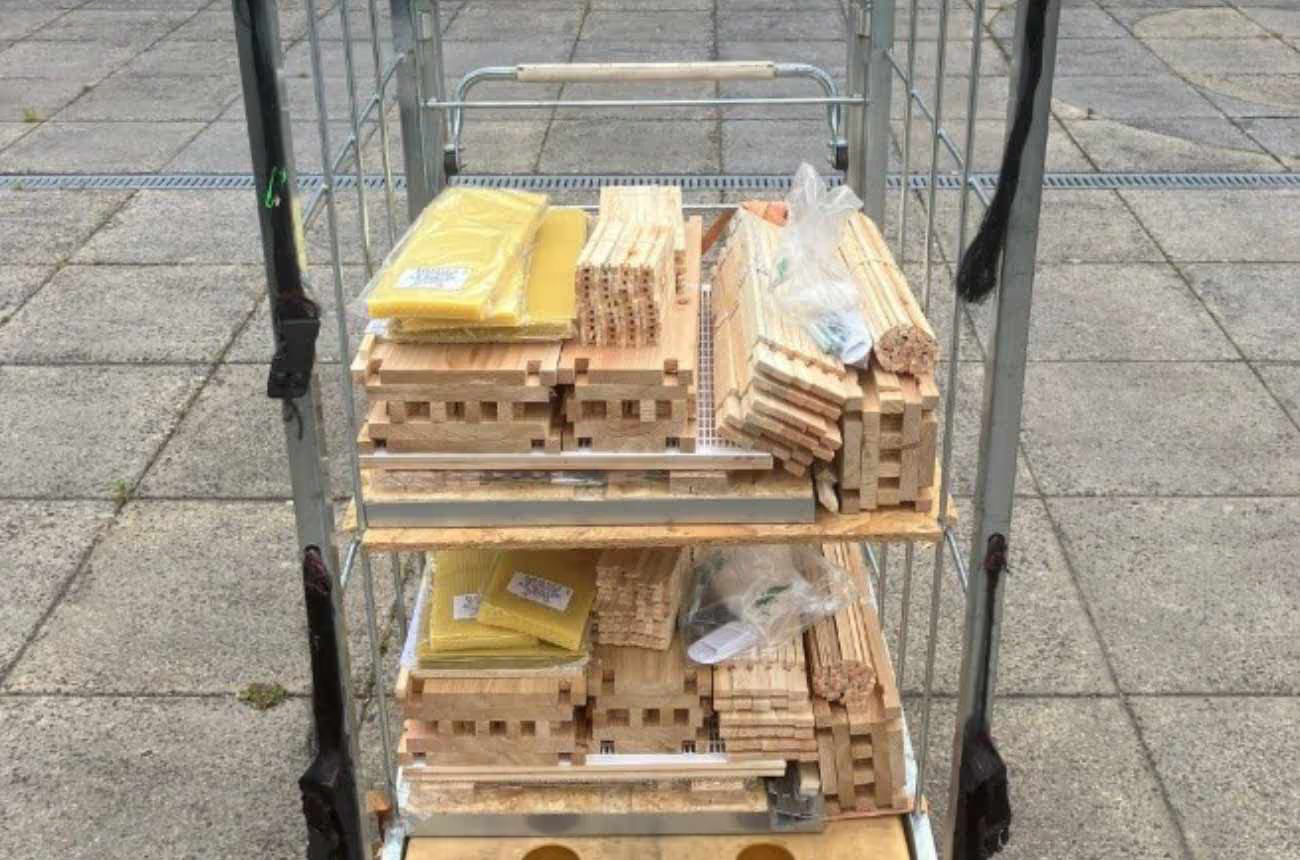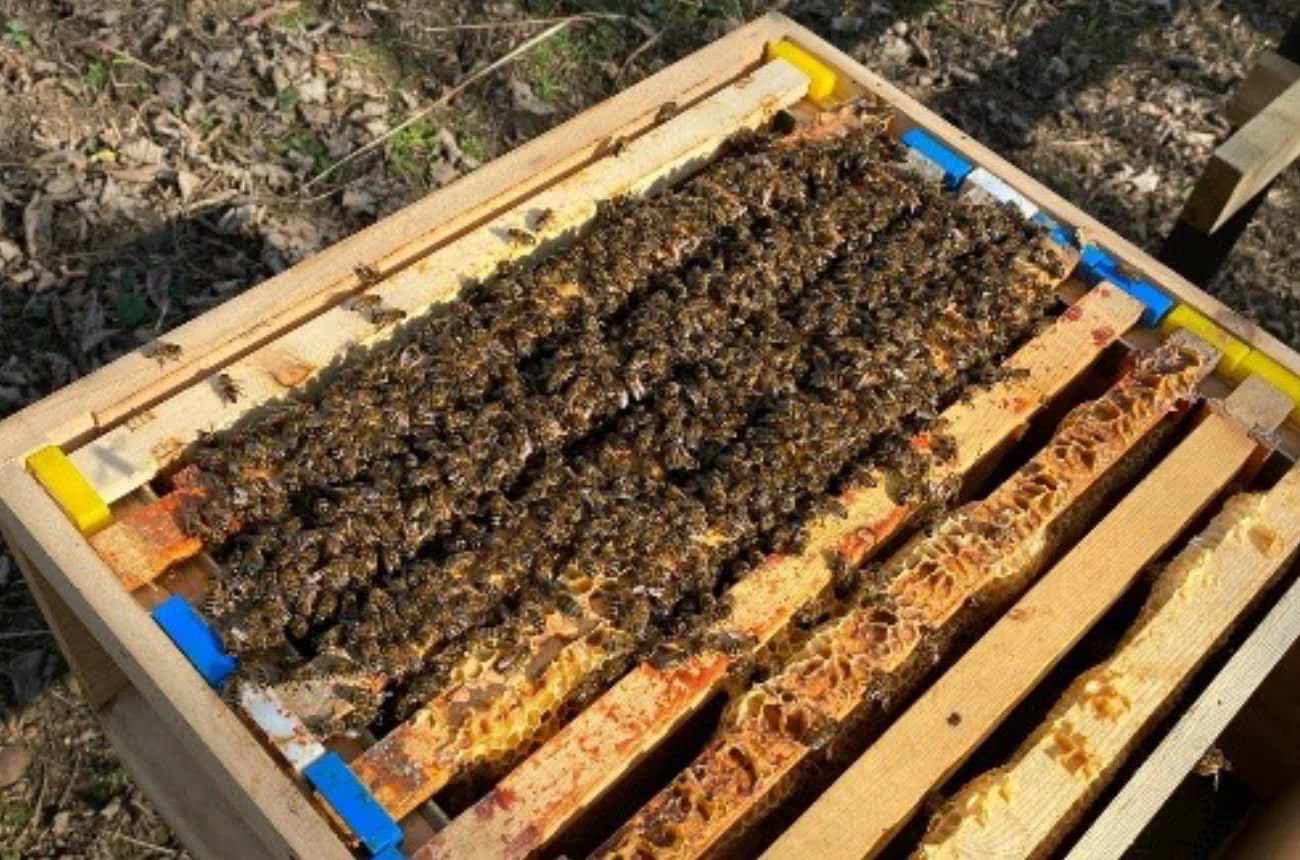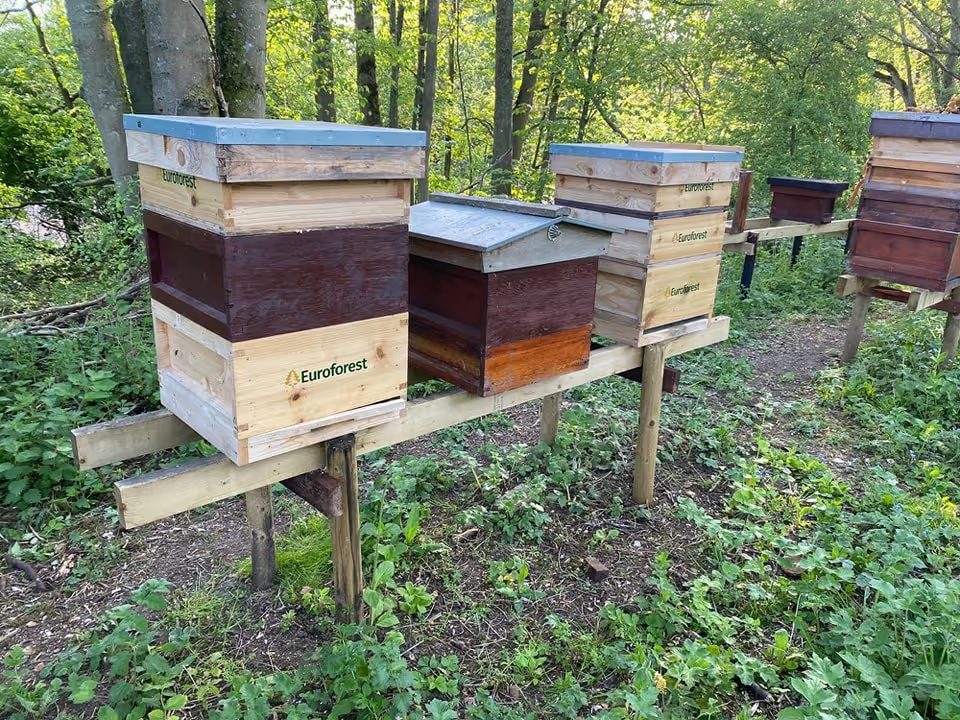
This is an exciting project aimed at supporting native pollinators, promoting sustainable land use, and fostering public awareness around key ecological issues.
This collaboration sees Euroforest invest in two national beehives, which are currently being built by Ben Manterfield, General Manager for Southeast & East England. Once completed, the hives will house two colonies of native British Black honeybees, also supplied by Euroforest. The hives will be situated in the Lincolnshire Wolds Area of Outstanding Natural Beauty (AONB), with ongoing care and management provided by the Lincolnshire Honey Company.
The Lincolnshire Honey Company, led by beekeeper Will Hamilton, is part of a cooperative that advocates for sustainable beekeeping and land use. Their work includes outreach to schools and community groups, where they help people understand the vital role pollinators play in our environment.
Speaking about the partnership, The Lincolnshire Honey Company shared:
“It’s a privilege to be able to participate in an initiative like this with a company of the size and stature of Euroforest. I know Euroforest are practitioners of sustainable management (which is a part of your ethos) re forestry which is great. As beekeepers, forest and woodland is critically important for bees, giving food and shelter. In the south of England particularly, forest/woodland is prime potential habitat for the Asian hornet which has most beekeepers and conservationists very worried. Hoping to support a positive initiative here, encourage collaboration between beekeepers and foresters, and raise awareness regarding the spread of the Asian hornet. Many thanks again for the opportunity.”
Beyond producing local honey, available to taste at shows and events, the project also highlights the shared threats faced by bees and forests, particularly the growing concern around invasive species like the Asian hornet. With forests in southern England seen as potential strongholds for these invasive predators, the new hives will double as monitoring stations, helping to track and raise awareness of this emerging ecological threat.
At Euroforest, we believe that the future of land management lies in collaboration between foresters, conservationists, communities, and the species we all depend on. This project reflects our core ethos: rooted in excellence, growing together.

We’re thrilled to share that our two colonies of native honeybees have successfully made it through their first winter! Both queens are actively laying eggs, while the worker bees are busy removing waste, drawing fresh comb, and foraging for food.
Will from the Lincolnshire Wolds Honey Company, who cares for our bees, has reported that they’re thriving in their woodland habitat. Unlike colonies in orchards or open fields, our bees benefit from a warmer, more sheltered microclimate within the forest.
With hazel, willow, and native spring bulbs nearby, there’s plenty of early-season forage to keep the colonies healthy and strong. It’s shaping up to be a vibrant start to the season and we couldn’t be more excited!

Exciting news from Euroforest, our colonies of native honeybees, carefully managed by the Lincolnshire Wolds Honey Co, are thriving and growing stronger by the day.
Thanks to their remarkable progress, additional hive boxes have recently been added to provide more space. One hive now boasts a honey box, or ‘super,’ where the bees can store their surplus honey. Meanwhile, the second hive has grown so impressively that Will from the Honey Co has installed a second brood box, expanding the bees’ nesting area just in time for the busy summer honey season.
We’re eagerly looking forward to sharing the fruits of their hard work — fresh Euroforest honey — at our upcoming events once the extraction process is complete.
Stay tuned for more updates on our buzzing little team!
